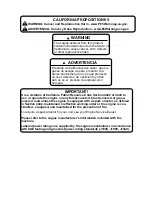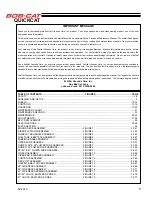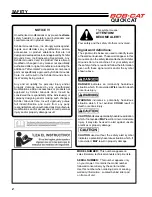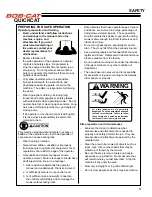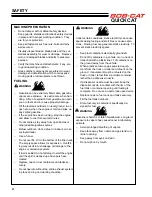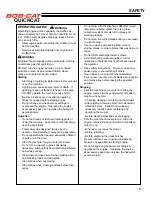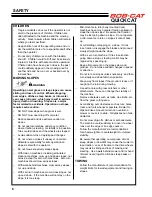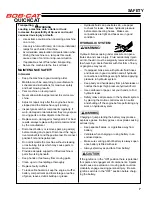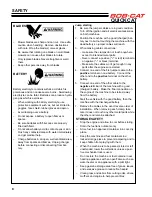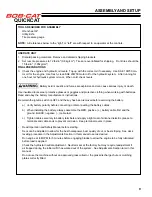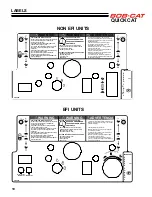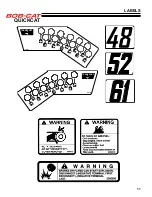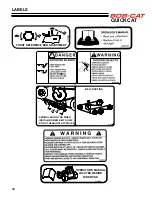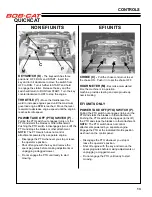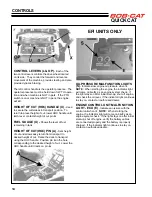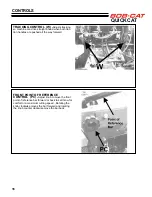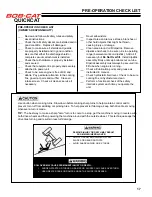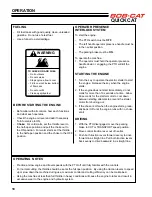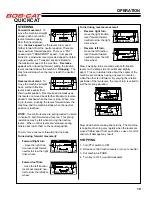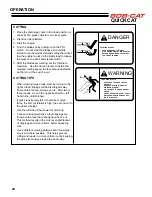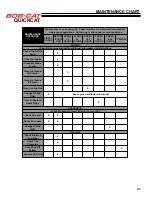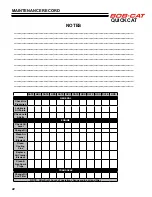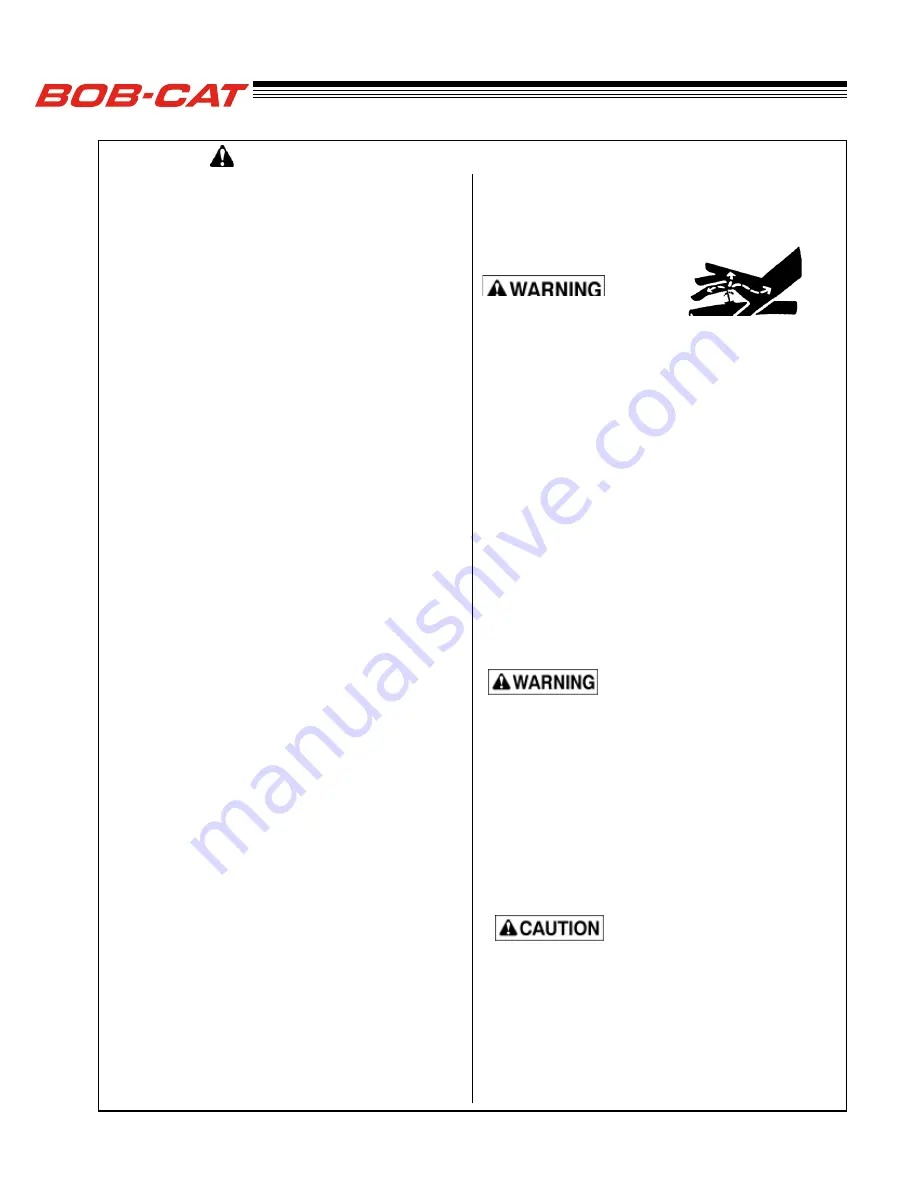
7
QUICKCAT
SAFETY
WARNING
MAINTENANCE SAFETY
In General
– Keep the machine in good working order.
– Maintain machine according to manufacturer's
schedule and instructions for maximum safety
and best mowing results.
– Park machine on level ground.
– Never allow untrained personnel to service ma-
chine.
– Adjust or repair only after the engine has been
stopped and the blades have quit rotating.
– Inspect grass catcher components regularly. If
worn, damaged or deteriorated, they may expose
moving parts or allow objects to be thrown.
– Replace worn, damaged or faulty parts. For best
results, always replace with parts recommended
by the manufacturer.
– Disconnect battery or remove spark plug wire(s)
before making any repairs. Disconnect the nega-
tive terminal first and the positive last. Reconnect
positive first and negative last.
– Do not dismantle the machine without releasing
or restraining forces which may cause parts to
move suddenly.
– Provide adequate support for lifted machine or
parts if working beneath.
– Keep hands or feet away from moving parts.
– Clean up oil or fuel spillage thoroughly.
– Replace faulty mufflers.
– To reduce fire hazards, keep the engine, muffler,
battery compartment and fuel storage area free
of grass, leaves, debris buildup or grease.
Transporting
Loading a machine onto a trailer or truck
increases the possibility of tip-over and could
cause serious injury or death.
– Use extreme caution when operating a machine
on a ramp.
– Use only a full-width ramp; do not use individual
ramps for each side of machine.
– Avoid sudden acceleration or deceleration while
driving the machine on a ramp as this could
cause a loss of control or a tip-over situation.
– If applicable, shut off fuel when transporting.
– Secure the machine to the truck or trailer.
– Hydraulic fluid can penetrate skin, use paper
to check for leaks. Relieve hydraulic pressure
before disconnecting hoses. Make sure
connections are tight and hoses are in good
condition.
HYDRAULIC SYSTEM
Hydraulic fluid escaping under pressure can pene
-
trate skin and cause injury. Fluid accidentally inject-
ed into the skin must be surgically removed within a
few hours by a doctor familiar with this form of injury
or gangrene may result.
– If equipped, make sure all hydraulic fluid hoses
and lines are in good condition and all hydraulic
connections and fittings are tight before applying
pressure to hydraulic system.
– Keep body and hands away from pinhole leaks or
nozzles that eject high pressure hydraulic fluid.
– Use cardboard or paper, not your hands, to find
hydraulic leaks.
– Safely relieve all pressure in the hydraulic system
by placing the motion control levers in neutral
and shutting off the engine before performing any
work on hydraulic system.
Charging or jump starting the battery may produce
explosive gases. Battery gases can explode causing
serious injury.
– Keep sparks, flames, or cigarettes away from
battery.
– Ventilate when charging or using battery in an
enclosed space.
– Make sure venting path of battery is always open
once battery is filled with acid.
– Always shield eyes and face from battery!
If the ignition is in the "ON" position there is potential
for sparks and engagement of components. Sparks
could cause an explosion or moving parts could ac-
cidentally engage causing personal injury. Be sure
ignition switch is in the "OFF" position before charg-
ing the battery.


